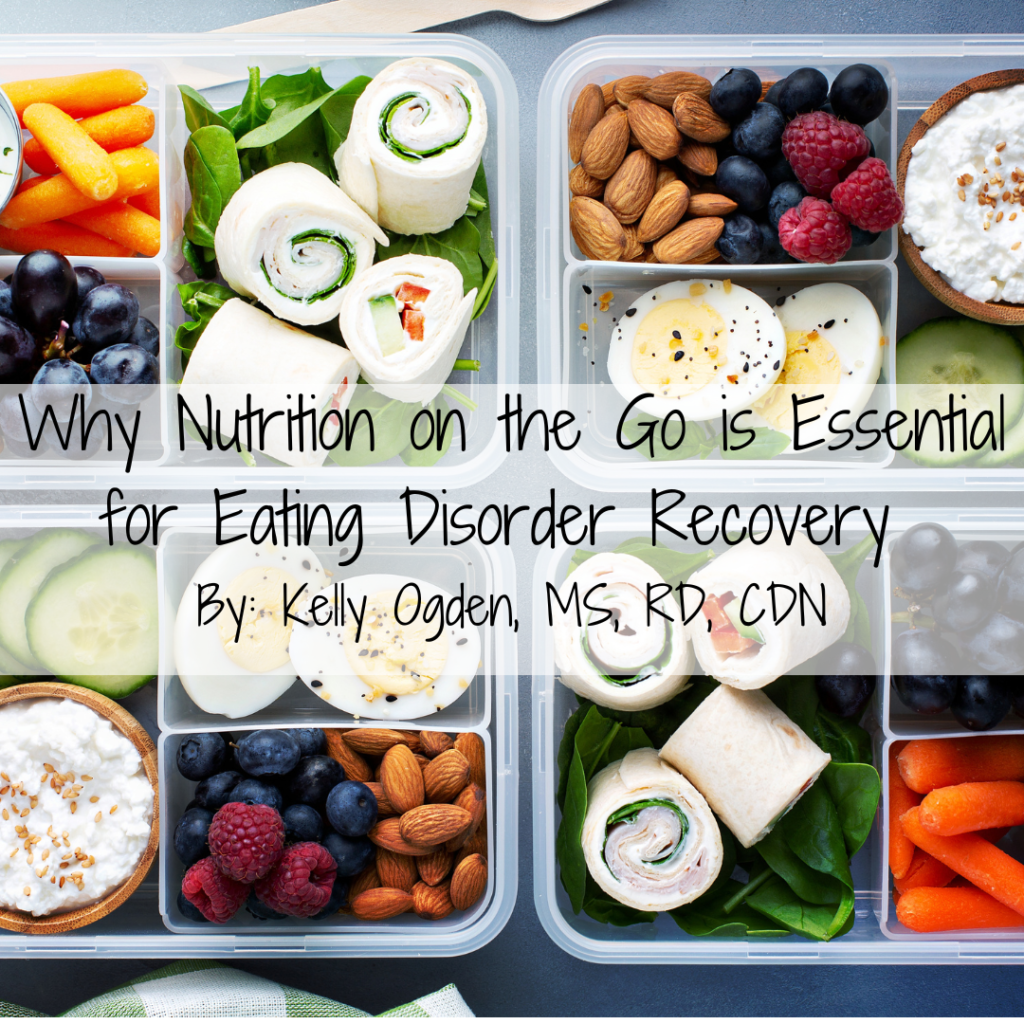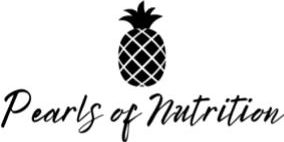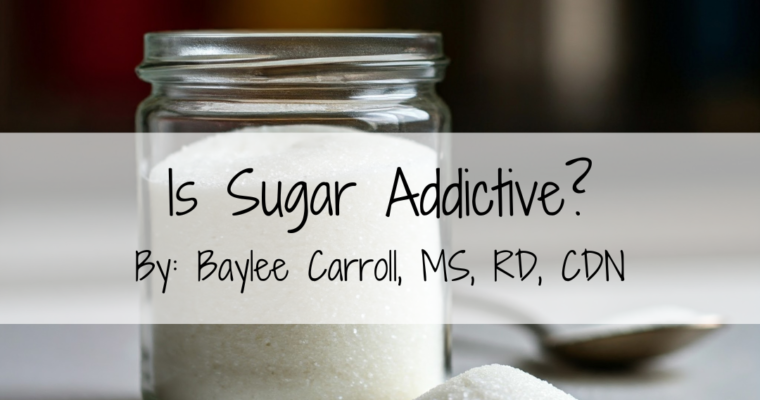
Eating disorder recovery is a complex journey requiring a multifaceted approach to physical, mental, and emotional healing. A key part of this process is rebuilding a healthy relationship with food, which includes not only what is eaten but how and when it is consumed. Incorporating proper nutrition is not always easy for those in recovery to maintain consistent eating habits, especially with the demands of daily life. Nutrition on the go—having balanced, nutrient-rich food readily available during busy schedules—can play a crucial role in sustaining recovery. Let’s explore why nutrition on the go is essential for those in eating disorder recovery and how it supports long-term healing.
1. Supporting Structured Eating Habits
One of the key challenges for individuals in eating disorder recovery is establishing and maintaining a structured eating schedule. Many recovery programs emphasize regular meals and snacks every 3-4 hours to help stabilize blood sugar levels, support metabolism, and prevent restrictive or binge-eating cycles. However, sticking to this schedule in your everyday life can be challenging when life is busy and unpredictable.
Portable, easy-to-access food options make it feasible for individuals to follow a structured eating plan, even on their busiest days. By preparing meals and snacks in advance or choosing convenient, nutrient-dense foods on the go, individuals in recovery are more likely to stay on track. The predictability of a structured eating routine provides a foundation for physical and psychological stability, allowing individuals to heal and thrive with their relationship with food.
2. Preventing Relapse by Minimizing Vulnerable Scenarios
Eating disorder recovery often involves identifying and addressing “danger zones” defined as situations where individuals feel vulnerable to old behaviors, such as skipping meals, restricting intake, or overeating. Common situations include feeling unprepared, hungry, or overwhelmed in situations where no safe food options are readily available.
Having easily accessible food on hand serves as a safety net against these danger zones. A balanced snack or meal on the go can help prevent impulsive, unhelpful food choices driven by hunger or stress. Additionally, keeping food within reach provides an extra layer of security, ensuring that a delay in mealtime won’t turn into skipped meals, leading to binge cycles, or triggering thoughts associated with restriction. Special events like parties, weddings, or holidays can be a times often described as vulnerable by those in eating disorder recovery. Work with your Registered Dietitian in session to discuss any concerns you may have and how best to navigate to avoid a vulnerable situation.
3. Addressing Physical and Emotional Needs Simultaneously
Eating disorder recovery isn’t just about physical health; it’s about redefining one’s relationship with food and body image. For many in recovery, food can evoke feelings of guilt, anxiety, or unworthiness. This emotional struggle is especially present in unplanned situations where food choices are limited.
Nutrition on the go helps alleviate some of the anxiety associated with food. When individuals can plan and prepare their food in advance, they are more likely to make choices that align with their recovery goals, supporting both their physical and emotional needs. Prepared, balanced meals or snacks provide assurance that they’re making mindful choices, reinforcing self-trust and empowering them to handle eating situations with confidence. While planning is beneficial, it is also important to acknowledge that there are times in recovery where pushing yourself outside of your comfort zone with food choices is also beneficial.
4. Fueling a Busy, Active Lifestyle in a Positive Way
Eating disorders often lead to physical weakness, nutrient deficiencies, and even decreased motivation, which can make it challenging to lead a full and active life. Once in recovery, individuals may find themselves rediscovering interests, such as physical activity, hobbies, and work or school commitments. These pursuits are valuable, as they offer connection and structure, but they require adequate and consistent nutrition to be able to be present and enjoy.
Portable, nutrient-rich food provides the fuel necessary for a fulfilling, active lifestyle without requiring a break in recovery progress. Many portable foods—like nut butter with fruit, Greek yogurt with granola, or a wrap can offer the energy needed to participate in daily activities without compromising recovery goals. This practice of fueling with intention empowers individuals to see food as something positive and necessary, rather than something to be feared or controlled.
5. Reducing Stress and Enabling Mindful Eating
An overlooked benefit of having access to nutrition on the go is the reduction of stress. For those in eating disorder recovery, the stress of choosing, preparing, and consuming food can be overwhelming. Having food readily available relieves this burden, allowing individuals to focus on other aspects of their day and on building positive life skills.
While eating on the go is often associated with rushed, distracted consumption, it doesn’t have to be this way. By planning ahead, individuals can practice mindful eating even with a portable meal. Taking a moment to check in with their body’s hunger and fullness cues, savoring the flavors, and acknowledging their food choices helps reinforce recovery oriented habits. Over time, this approach can support a healthy relationship with food, moving individuals further along the path of recovery.
6. Promoting Flexibility with Food
Flexible eating is a core aspect of lasting recovery, and nutrition on the go facilitates this by allowing individuals to adapt to a range of environments and situations without compromising their meal plans or recovery goals. With portable options, individuals can be spontaneous and still meet their nutritional needs, reinforcing the idea that food is fuel and can be enjoyed without rigid rules. This can be empowering, as it fosters independence and confidence in handling different eating situations.
Tips for Nutrition on the Go in Recovery
For those in eating disorder recovery, practical tips to maintain nutrition on the go include:
• Prepare snacks in advance: Portion bags of nuts, crackers, or pretzels, cut up fruit, purchase individual items like yogurts, cottage cheese, overnight oats, or trail mix packets, make 1/2 sandwiches, or spread cream cheese or nut butter on bagels, toast, or english muffins.
• Keep “just in case” shelf-stable snacks in your car, backpack, or purse: protein bars, dried fruit, trail mix, pretzels, a jar or packets of nut butter, jerky, roasted chickpeas, popcorn, applesauce
• Stay hydrated: Bring water, herbal tea, sports beverages, or milk along to stay hydrated, as hydration is key for both physical and mental well-being.
• Pack meals when possible: When facing a full day of activities, bring along an adequate meal, such as an easy to pack wrap, to ensure a satisfying option is available. If packing a meal is not possible, have a plan for what time you will need nutrition and figure out where you will pick up food. If possible, look up the menu options ahead of time so you know what will be available.
• Think about where you might consume these meals or snacks. As many people struggle with eating in public, it’s important to have an option that feels safe to you, so that you may adequately nourish yourself.
Eating disorder recovery is a multifaceted journey that demands patience, persistence, and an ongoing commitment to self-care. Nutrition on the go provides the structure, stability, and confidence necessary to stay committed to recovery, even in busy or challenging situations. By making food accessible, individuals can build positive associations with food and prevent the behaviors and mindsets that contribute to relapse. Work with your Registered Dietitian to see how you can incorporate nutrition on the go in your daily life.


